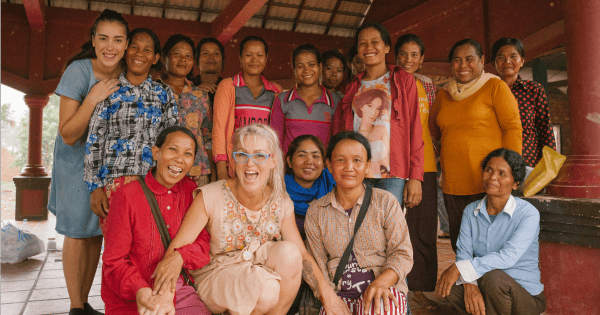
Hepzabeth Evans and Sonia Lyne have just spent six hours sitting in the dust with twenty women from a tiny Cambodian village, surrounded by chickens, cats and piglets.
And the two Australian small business women are elated.
“I just need to sit with it all for a bit,” says Sonia, through tears.
The pair have travelled to Cambodia to teach rural women skills to help them start a craft business from home. In return, the local women taught Hepzabeth and Sonia their own trade – basket-weaving.
One of those local women, Sangsaveth, has been basket-weaving since she was ten. Today, she makes her living working on a construction site mixing cement and carrying bricks, as well as weaving baskets as part of a cooperative established by Plan International Australia. She’s was eager to learn what she can from Hepzabeth and Sonia. “I want to learn more skills, so I can find another way to earn income,” she explains.



